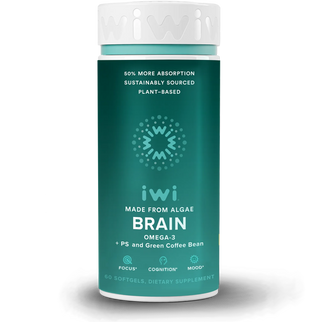Burnout isn’t just about having a bad day or a rough week at work. It's a state of chronic physical, emotional, and mental exhaustion. It's the result of carrying the weight of prolonged stress, and it can feel like you're running on empty with no pit stop in sight.
While burnout has officially been around since 1974, it was thrust into the limelight during the pandemic. The added pressures that came with managing life during COVID dramatically increased the average individual stress levels. Unsurprisingly, these extra strains started to result in more and more people experiencing burnout.
The good news is that burnout isn’t a life sentence. Today, we’re diving deep into the world of burnout and providing a path for you to follow to escape it.
What Is Burnout?
Burnout, as defined by the World Health Organization, is an occupational phenomenon rather than a medical condition. It's most often the result of chronic stress within the workplace that hasn’t been successfully managed.
There are many known causes of burnout, including, but not limited to:
- An excessive workload that leaves you feeling like you're always playing catch-up.
- A lack of control over your work duties, schedule, or environment, leading to feelings of helplessness.
- Insufficient rewards, whether it's a salary that doesn't match your effort, lack of benefits, or minimal recognition for your hard work.
- A lack of community, support, or positive relationships at work, making you feel isolated or undervalued.
- Unfair treatment at work, which could include bias, favoritism, or unfair expectations.
- A lack of work-life balance, where your job is taking too much time and energy away from your personal life.
Who Is Most Likely To Experience Burnout?
Work-related stress is an unavoidable aspect of any job — but while burnout can affect anyone, there are some groups that are more likely to experience it than others, such as:
- Healthcare professionals: Doctors, nurses, and other caregivers often face high-stress situations, long shifts, and the emotional strain of caring for patients, making them highly susceptible to burnout.
- Teachers: The pressures of managing large classes, high expectations, administrative tasks, and the emotional stress of dealing with diverse student needs can lead to burnout in teachers.
- Social workers: Dealing with societal issues, emotional trauma, and often working in under-resourced environments can lead to high stress and burnout in social workers.
- Law enforcement officers: The high-stress nature of their job, irregular shifts, and dealing with challenging situations can lead to burnout among law enforcement officers.
- Customer service representatives: Dealing with customer complaints, high call volumes, and often working under strict performance measures can lead to high stress and burnout.
- Remote workers: While there are certainly some benefits to working from home, some people might struggle with work-life balance, isolation, and a lack of structure which can lead to burnout.
What Are the Symptoms of Burnout?
Burnout isn't just about feeling tired. It's a deeper, more chronic emotional exhaustion that’s so intense that it can impact your physical health and other aspects of your life.
The most common signs of burnout include:
- Chronic fatigue and decreased energy levels
- Insomnia or difficulties in falling or staying asleep
- Physical symptoms such as headaches, stomachaches, and frequent illnesses
- Increased irritability or impatience with colleagues, customers, or clients
- A sense of dread or anxiety about work
- Decreased productivity and difficulty concentrating
- Feelings of disillusionment or cynicism towards your job
- Decreased satisfaction and sense of accomplishment in your work
- Withdrawal from responsibilities or isolation from others
How Can You Recover From Burnout?
Burnout can leave you feeling emotionally, mentally, and physically drained. The good news is, burnout is not a permanent state, and recovery from burnout is possible.
Here's how you can get started on your journey to recovery:
1. Consult a Health Professional
Consulting a health professional is often a wise first step when dealing with burnout. These individuals, whether they're doctors, therapists, or psychiatrists, have a wealth of knowledge and experience to guide you through your recovery process.
A doctor can help you pinpoint stressors, decode your symptoms, track your progress, and provide strategies tailored specifically to your needs. It's like having a personal guide on your journey to recovery.
2. Set Boundaries and Prioritize Self-Care
Creating a distinction between your work life and personal life is crucial in preventing burnout. It’s important to remember that you're not a robot programmed to churn out tasks non-stop; you're a human being with needs, emotions, and limits. Be sure to treat yourself accordingly with a little self-care.
Now, self-care isn't just about pampering yourself – though a little pampering is always good! It's also about taking care of your basic needs. This includes getting enough sleep, eating a balanced, healthy diet, and taking regular breaks to rejuvenate your mind and body. Prioritizing self-care is not just about maintaining productivity; it's about respecting and caring for yourself.
3. Regular Physical Activity
Getting regular exercise is a powerful antidote to stress and burnout. It helps reduce levels of cortisol, the stress hormone, and triggers the release of endorphins, your body's natural mood elevators.
Whether you choose to take a brisk walk in the park, join a yoga class, or sweat it out in a high-intensity workout, the key is to find an activity you genuinely enjoy. This way, exercise doesn't become another task on your to-do list, but instead, a fun and rewarding part of your daily routine.
4. Practice Mindfulness and Breathing Exercises
Both mindfulness and breathing exercises are effective stress management techniques. These tools can help you tune into the present moment, fostering a heightened state of awareness and promoting a sense of calm and well-being.
When you're mindful, you're less likely to get caught up in worries about the future or regrets about the past.
Through mindfulness, you can learn to detach from your workday and appreciate the life you have outside your job. It's a reminder that there's a whole world out there waiting for you to explore and enjoy beyond your work responsibilities.
5. Consider a New Job or Career Path
Sometimes, a fresh start in a new field or position is all that it takes for renewed energy and motivation. Don't be afraid to consider other career paths, especially if your current job is what caused you to experience burnout in the first place.
Life is too short to be stuck with a job that’s causing you distress or problems, so try to find a role that aligns with your personal interests, values, and lifestyle. It's your life, and it's never too late to make changes that could lead to greater job satisfaction and overall happiness.
6. Connect with Loved Ones
The power of human connection is immeasurable. Spending time with family, friends, and cherished co-workers can provide a much-needed respite from work-related stress.
These are the people who know you best, who can lend a listening ear, offer words of encouragement, and share a hearty laugh. Laughter, after all, is a fantastic stress reliever, promoting a sense of well-being and relaxation.
Make time for those heartwarming family dinners, coffee chats with friends, or even a simple phone call to a loved one.
7. Practice Self-Compassion
In the journey to burnout recovery, it’s important to be your own best friend. Practice self-compassion, acknowledging your feelings without judgment. It's okay to feel overwhelmed, and it's okay to need a break.
Understand that it's perfectly normal not to be okay sometimes. Give yourself permission to step back, rest, and recover when needed. Self-compassion isn't about being self-indulgent or shirking responsibilities — it's about recognizing your limits and taking care of your well-being.
8. Engage in Relaxing Activities
Incorporate activities into your routine that help you unwind and relax. It could be curling up with a good book, immersing yourself in soothing music, or taking a leisurely walk in nature.
These activities can act as a mental escape from stress, allowing your mind and body to rejuvenate. They give you a chance to disconnect from the hustle and bustle of everyday life, even if it's just for a few minutes.
Find what relaxes you and make it a part of your regular routine. After all, a relaxed mind is a rejuvenated mind.
The Bottom Line
Understanding and addressing burnout is a vital aspect of maintaining overall well-being. It's about recognizing the signs, taking proactive steps, and, most importantly, prioritizing your mental health. Remember, you're not alone in this journey, and it's absolutely okay to seek help when you need it.
At iwi life, we're a community that's here to support you in your journey to wellness. We believe in the power of nature to nourish and rejuvenate, and that's why we've harnessed the potent benefits of algae in our range of plant-based omega-3 supplements. Our products are designed to enhance your well-being and provide a supportive boost that can support your recovery from burnout.
As you navigate your way through recovery from burnout, remember to take care of yourself, not just physically, but also emotionally and mentally. In this journey to reclaim your well-being, iwi life is here to support you every step of the way.
Sources:
Burnout in United States Healthcare Professionals: A Narrative Review | PMC
6 Causes of Burnout, and How to Avoid Them | Harvard Business Review
Job Burnout: How To Spot It and Take Action | Mayo Clinic
12 Ways To Recover From Burnout | Cleveland Clinic
Endorphins: The Brain’s Natural Pain Reliever | Harvard Health
Cortisol: What It Is, Function, Symptoms & Levels | Cleveland Clinic
Relaxation Techniques: Breath Control Helps Quell Errant Stress Response | Harvard Health


















